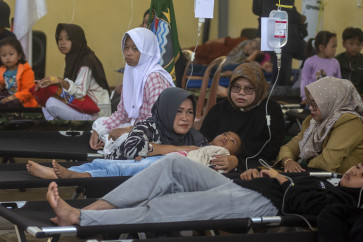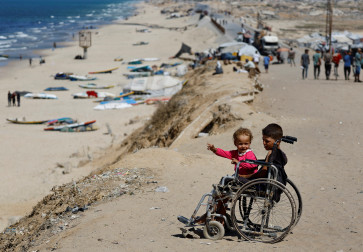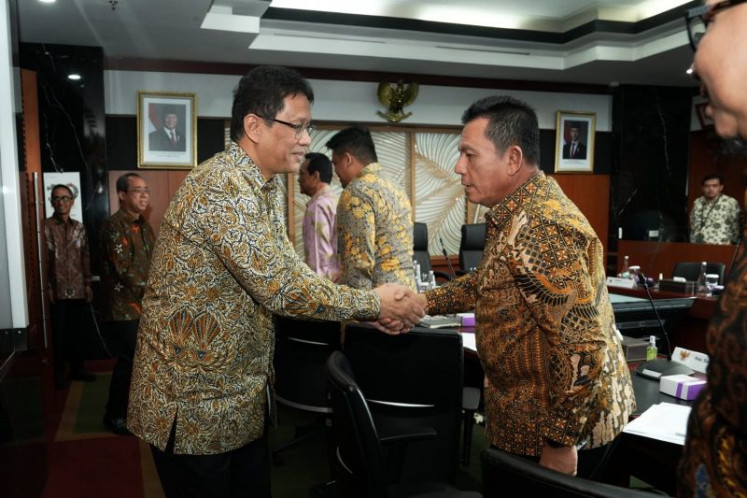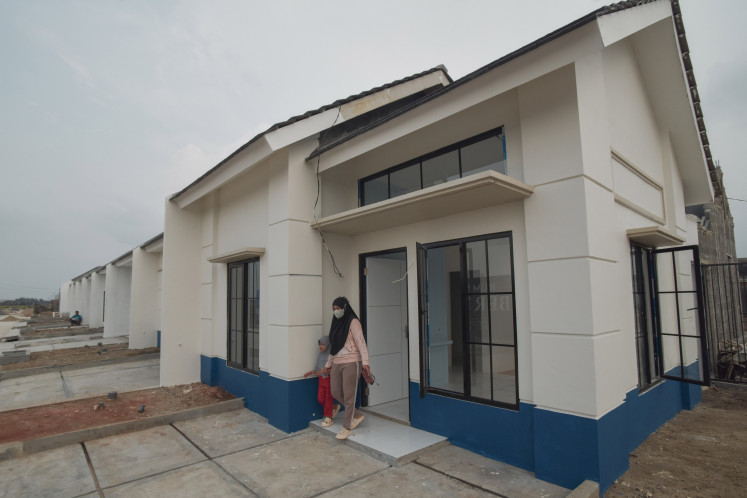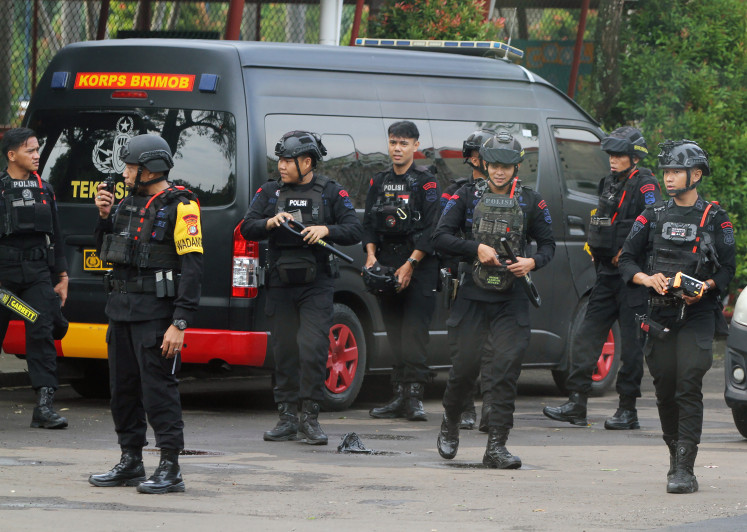Popular Reads
Top Results
Can't find what you're looking for?
View all search resultsPopular Reads
Top Results
Can't find what you're looking for?
View all search resultsUNESCO: Most nations fail gender parity goal for education
School children attend the first day of classes at the Talaat Harb government primary school, in the popular district of Shubra, Cairo, Egypt, Sept
Change text size
Gift Premium Articles
to Anyone
S
span class="caption">School children attend the first day of classes at the Talaat Harb government primary school, in the popular district of Shubra, Cairo, Egypt, Sept. 28. (AP/Mohamed Elraai)
More than half of the world's countries have failed to achieve gender parity in education for girls in primary and secondary schools, according to a new U.N. report.
The document released Friday by the U.N.'s cultural agency UNESCO focused on the evolution of education for girls since 2000, when 164 countries agreed on common education goals.
Although 62 million girls are still denied their basic right to an education, the number of out-of-school girls has declined by 52 million in the last 15 years, according to the Paris-based organization.
The number of countries that did reach gender parity, achieving equal participation of girls and boys based on their proportion in the relevant age-groups, has risen in both primary and second education from 36 to 62 from 2000 to 2015.
Child marriage is a persistent barrier to girls' education. UNESCO statistics show in 2012, almost one in five women married were between 15 and 19 years of age.
The report also stressed that "the lack of progress in literacy among adult women is especially stark". In 2015 an estimated 481 million women, aged 15 and over, lack basic literacy skills, 64% of the total number of those who are illiterate, a percentage virtually unchanged since 2000.
The report recommends that governments recruit, train and support teachers to address gender inequality. It also calls for school fees to be abolished, and costs for textbooks, uniforms and transport to be covered.
"Educating a girl educates a nation. It unleashes a ripple effect that changes the world unmistakably for the better. We have recently set ourselves a new ambitious agenda to achieve a sustainable future. Success in this endeavor is simply not possible without educated, empowered girls, young women and mothers", Irina Bokova, the director-general of UNESCO, said in a statement. (k)



